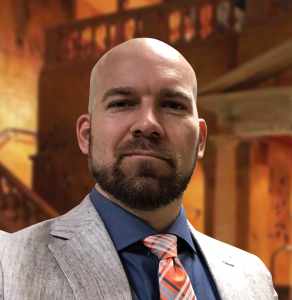
We recognized University of Nevada Las Vegas for offering one of Top Entry-Level, Pre-Degree Paralegal Certificate Programs, adding them to our list of top recommendations for students in the area.
We were excited to hear from Zachariah B. Parry, faculty member at University of Nevada Las Vegas, who took the time to answer a few questions about how the school works to create a great student experience that helps prepare graduates for a career in the legal field.
 Are you finding a lot of career changers in your program looking to get their start in the legal profession?
Are you finding a lot of career changers in your program looking to get their start in the legal profession?
Zachariah: Yes. Probably 50–60% of our students are already gainfully employed and looking for a career change. Most of these are in the hospitality industry working as a bartender or server at a restaurant. There are quite a few others working in a hotel or casino in some capacity.
The rest of our students are either fairly young and looking to enter the paralegal field straight out of high school or college, or are looking to further their skills in their chosen career by learning more about the law.
Paralegals are really getting the respect they deserve these days, and taking on more and more responsibilities on the job. How is this changing the approach to educating new paralegals?
Zachariah: We found the curriculum we were using was outdated and not serving the modern paralegal like it should. We had to completely revamp and modernize the curriculum to put more focus on the practical skills a paralegal needs to thrive in a legal environment.
Does the program at your school include an internship and are faculty available to help students find one?
Zachariah: There is no internship requirement for graduation, but we do work with an ever-expanding circle of legal professionals to provide internship opportunities to students interested in kick-starting their career. Approximately 15–25% of our students take advantage of internship opportunities every semester.
What are some of the things you love most about the paralegal program at your school – the kind of things you’d like future students to know about as they consider their options?
Zachariah: Our students are each assigned a plaintiff and a defendant in a civil suit. They prepare a demand letter, complaint, written discovery, and a motion for summary judgment for their plaintiff client, and then they respond to another student for their defendant client. During the course, they learn the substantive law for the most common practice areas (torts, contracts, criminal law and procedure, civil procedure, wills and trusts, and family law), legal writing techniques (including legal typography), and then they get actual (fake) evidence in their cases (videos, medical records, incident reports, etc.).
At the same time, they are learning law firm management skills, customer service in a legal setting, and ways a paralegal can help market the firm they are working for. The class culminates in a round of speed-interviewing with real potential employers in the Las Vegas Valley.
Check out our full interview series here to see what other professors and faculty are saying about their paralegal programs.





